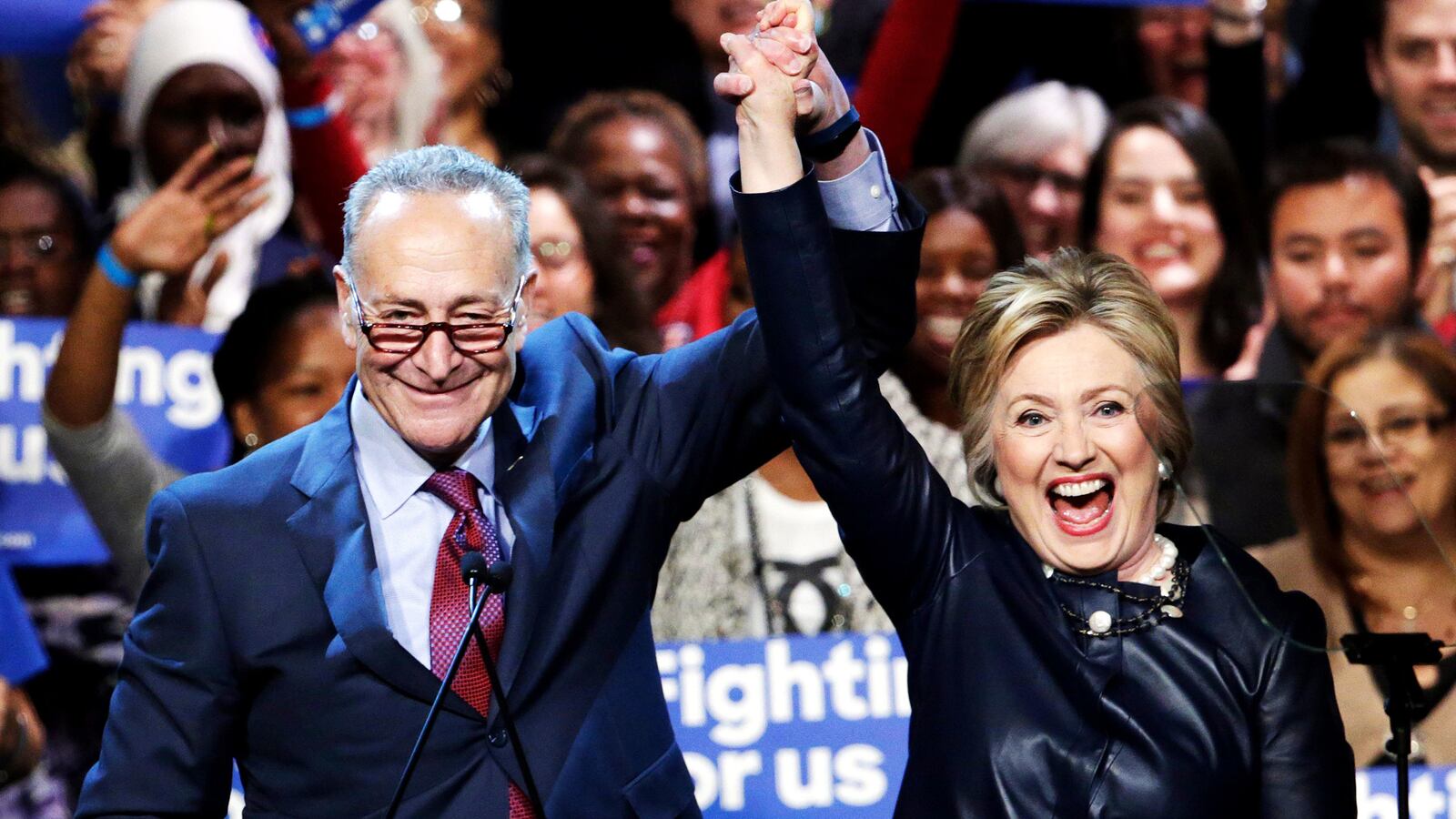In less than a week, the nation will elect its 45th president and, while Hillary Clinton and Donald Trump trade brickbats on the campaign trail, another—arguably more critical— fight is also unfolding: Who will control the U.S. Senate?
On Election Day, the American electorate— decidedly more diverse than in years past— will decide who we are as a nation and who we want to be.
If the polls are right, the GOP’s two-year old majority in the upper chamber may well end Nov. 8, with political prognosticators placing the lion’s share of the blame for that looming loss on Trump, whose unfavorable rating now hovers near 60 percent. Broadly speaking, statewide candidates—including sitting members of the Senate—have not been able to rely on his tattered coattails nor his fabled purse strings. Instead his decidedly untraditional campaign style, lack of in-state organization and inability to lure big dollar donors have been dragging down other Republicans.
They’ve struggled to find the right relationship with a candidate mired in personal scandals and controversies of his own making, while at the same time attempting to placate grassroots voters who have rallied to Trump’s side.
Today, Republicans hold a narrow four-member majority in the U.S. Senate and a Cook Political Report predicts Democrats might “gain five to seven seats.”
Long-serving incumbents like Sens. John McCain (R-Arizona) and Kelly Ayotte (R-New Hampshire), who might have otherwise sailed back into office, are now staring down meaningful challenges. Sen. Marco Rubio (R-Florida), once a presumed front-runner for the Republican nomination is now locked in a head-to-head battle with Patrick Murphy for his political life.
Should the Senate tip in favor of the Democrats, Majority Leader Mitch McConnell (R-Kentucky) will have to surrender his gavel to New York Senator Chuck Schumer and with that the ability to appoint committee chairs.
Democrats would also control hearings and confirmation votes for potential Supreme Court nominees. Currently facing a GOP blockade, President Obama’s nominee-in-waiting Garland Merritt might finally see an up-or-down vote. After the death of associate justice Antonin Scalia and with Justices Ruth Bader Ginsberg, Stephen Breyer and Anthony Kennedy— all at least 78 when the new president is sworn in— the Supreme Court could be radically reshaped in short order.
Fleeing from Trump without quite finding the heart to split from him, House Speaker Paul Ryan is calling on voters to focus almost exclusively on the outcome of down-ticket races. Many Republicans, rightly fearing that’ve already lost the White House, say their aim is to stop Hillary Clinton’s “liberal agenda.” Collectively, they have given into the notion that Clinton will capture the Oval Office
Democrats argue that, given the last eight years, the country can ill-afford more gridlock in Washington and that the necessary change won’t happen if Republicans maintain their current legislative majority. The House may be out of reach, at least for now, but the Senate, and with it the Supreme Court, is not.
For at least six of his eight years in office, President Barack Obama has been hamstrung by Congressional Republicans—who claimed the House in 2010 and then the Senate in 2014—as he pressed his legislative agenda. From government shutdowns to an unprecedented sidelining of a Supreme Court nominee, the president has watched his political visions severely weakened, when not turned to dust as recalcitrant GOP leaders proved less interested in partnering with the White House than with beating Obama.
The stakes are high.
As they did with President Obama, Republican leaders and members are already challenging Hillary Clinton’s legitimacy, even before she’s won the contest. They are talking about levying impeachment charges against her even before she takes the oath of office, and blocking any and all Supreme Court nominees she might offer. Trump, who brought the “birther” movement into the mainstream and rode it to his current position as the Republican party’s putative leader, repeatedly says Clinton belongs in jail and is not be qualified to seek the presidency.
Whatever the popular vote is in November, Republicans are a near lock to maintain control of the House, and to fight a President Clinton’s every move there. The Senate, however, is a different matter.
In Senate battleground states like Florida, North Carolina and Missouri, the majority may well swing in favor of the Democrats. Indiana, Wisconsin and Nevada are also up to bat. It stands to reason that the DNC and national senatorial committee are pouring resources in races where they think they can win. The coordinated, state-by-state campaign boasts a strong ground game. Fissures created by a Trump candidacy have resulted in opportunities that may not have been possible had a more traditional candidate won the Republican primary.
The U.S. Senate is the crucial check in our system of checks and balances. Win the Senate, and the House and the country may well follow. Fall short, and expect more grinding years like the last six.






